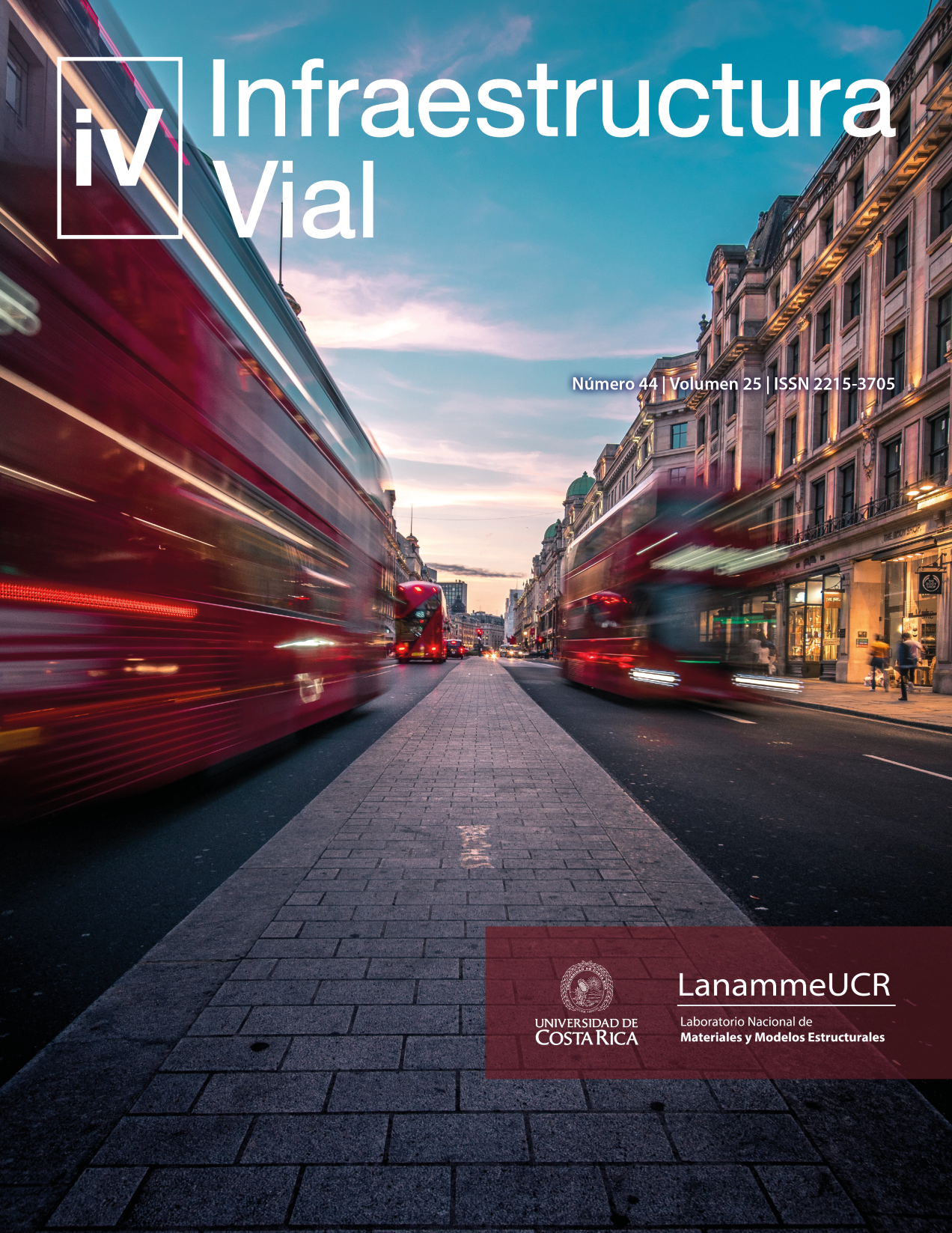Abstract
Stabilization of granular materials for bases and subbases with hydraulic cement is a process widely used in pavement construction due to its great advantages and structural contributions. Currently, the need has arisen to develop novel construction methods that contribute to environmental sustainability and reduce the construction costs of the road network. In this research, two different granular materials were analyzed, one that complies with the characteristics required by Costa Rican standard (CR-2020) to be considered in the construction of stabilized base layers, and other that doesn't. Different percentages of recycled polyethylene terephthalate (PET) synthetic fibers were added to these materials to determine whether the addition of PET can reduce the amount of cementitious material required in order to reduce costs in the construction process of stabilized bases, and, on the other hand, to analyze whether it is possible to obtain the minimum compressive strengths required by the standards by using another granular material that is not intended for that purpose.
Using different percentages of cement type MM/C (C-P)-28 with the two granular materials, cylinders were manufactured for a standard sample (without PET), and for samples with various percentages of recycled PET fibers. From a mechanical evaluation, positive results were obtained in which it was possible to observe that, through this addition of fibers, the amount of cementitious material can be reduced even below the minimum allowed by current Costa Rican standard (3 %) without compromising the compressive strength. For example, during the investigation it was observed that by using 2,5% cement in the granular materials with the addition of synthetic PET fibers, an average compressive strength of 3,33 MPa was obtained, which is above the minimum allowed of 3,0 MPa.
References
Arce-Jiménez, M. (2011). Bases estabilizadas con cemento: Algunos comentarios sobre sus ventajas e inconvenientes. Boletín Técnico: PITRA-LanammeUCR, 2(19).
Arteaga, J. F. (2018). Análisis del comportamiento de la base – cemento para pavimentos con adición de residuos PET reciclados (Tesis de grado). Bogotá, Universidad Católica de Colombia.
Herra, D. (2019). Bases estabilizadas con cemento y su importancia en el desarrollo vial costarricense. Blog LanammeUCR. Recuperado de https://bloglanammeucr.wordpress.com/2019/04/09/bases-estabilizadas-con-cemento-y-su-importancia-en-el-desarrollo-vial-costarricense/
MOPT (2020). Manual de Especificaciones Generales para la Construcción De Carreteras, Caminos y Puentes (CR-2020). San José, Costa Rica: Ministerio de Obras Públicas y Trasportes.
Monrroy, G. E., y Pardo, R. S. (2020). Factibilidad de desarrollar pavimentos con plástico reciclado. Encuentro Internacional de Educación en Ingeniería ACOFI. https://doi.org/10.26507/ponencia.853
Moghaddam, T. B., Karim, M. R., y Soltani, M. (2013). Utilization of waste plastic bottles in asphalt mixture. Journal of Engineering Science and Technology, 8(3), 264–271. https://doi.org/10.1088/1755-1315/436/1/012005
Sika (2011). Sika informaciones técnicas: Concreto reforzado con fibras. Lima, Perú: Sika Perú S.A. Recuperado de https://per.sika.com/dms/getdocument.get/743731e6-f615-3cf1-96f6-f2ebfac98803/Concreto%20Reforzado%20con%20Fibras_Brochure.pdf
Vega-Quirós, M. (2014). Variación de la resistencia de una subbase granular debido a la variación del contenido de finos plásticos en granulometrías controladas. Infraestructura Vial, 16(27), 36-43. https://doi.org/10.15517/iv.v16i27.14558
##plugins.facebook.comentarios##

This work is licensed under a Creative Commons Attribution-NonCommercial 4.0 International License.
Copyright (c) 2023 Minor Eduardo Murillo Chacón, Mauricio Carballo Rojas, María Gallardo Mejía



